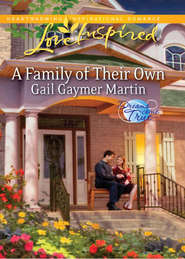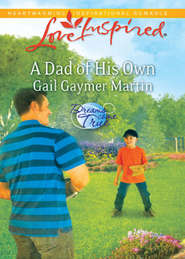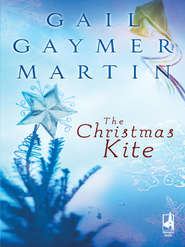По всем вопросам обращайтесь на: info@litportal.ru
(©) 2003-2025.
✖
Upon a Midnight Clear
Автор
Год написания книги
2018
Настройки чтения
Размер шрифта
Высота строк
Поля
Callie’s voice softened. “I’m sorry, Mr. Hamilton. You’re angry with me. I did speak to you disrespectfully, and I’m sorry. But I—”
“No. No, I’m not angry. You’ve made me think. I see no reason why Nattie should have an elderly nanny. A young woman might tempt her out of her shell. She’s needs to be around activity and laughter. She needs to play.” He felt tears push against the back of his eyes, and he struggled. He refused to sit in front of this stranger and sob, bearing his soul like a blithering idiot. “She needs to have fun. Yes?”
“Yes.” She shifted in her chair, seemingly embarrassed. “I’m glad you agree.” Callie stared into her lap a moment. “How does she spend her day now?”
“Sitting. Staring into space. Sometimes she colors, like today. But often her pictures are covered in dark brown or purple. Or black.”
“No school?”
David shook his head. “No. We registered her for kindergarten, but I couldn’t follow through. I took her there and forced her from the car, rigid and silent. I couldn’t do that to her. But next September is first grade. She must begin school then. I could get a tutor, but…” The memories of the first school day tore at his heart.
“But that won’t solve the problem.”
He lifted his eyes to hers. “Yes. A tutor won’t solve a single problem.”
“Well, you have seven or eight months before school begins. Was she examined by doctors? I assume she has nothing physically wrong with her.”
“She’s healthy. She eats well. But she’s lethargic, prefers to be alone, sits for hours staring outside, sometimes at a book. Occasionally, she says something to me—a word, perhaps. That’s all.”
Callie was silent, then asked, “Psychological? Have you seen a therapist?”
“Yes, the physician brought in a psychiatrist as a consultant.” He recalled that day vividly. “Since the problem was caused by a trauma, and given her age, they both felt her problem is temporary. Time will heal her. She can speak. She talked a blue streak before Sara’s death. But now the problem is, she’s unwilling to speak. Without talking, therapy probably couldn’t help her.”
Callie stared into the dying flames. “Something will bring her out. Sometimes people form habits they can’t seem to break. They almost forget how it is to live without the behavior. Maybe Nattie’s silence has become just that. Something has to happen to stimulate her, to make her want to speak and live like a normal child again.”
“I pray you’re right.”
“Me, too.”
He rose and wandered to the fireplace. Peering at the embers, he lifted the poker and thrust at the red glow. Nattie needed to be prodded. She needed stimulus to wake her from her sadness. The flames stirred and sparks sprinkled from the burned wood. Could this spirited woman be the one to do that?
“You mentioned you’d like me to meet your daughter,” Callie said.
He swung around to face her, realizing he had been lost in reverie. “Certainly,” he said, embarrassed by his distraction.
“I’d like that, when you’re ready.”
He glanced at the cup in her hand. “Are you finished with the tea?”
She took a final sip. “Yes, thanks. I have a two-hour drive home, and I’d like to get there before dark, if I can.”
“I don’t blame you. The winter roads can be treacherous.”
He stood, and she rose and waited next to the chair, bathed in the warm glow of the fire. David studied her again. Her frame, though thin, rounded in an appealing manner and tugged at his memory. The straight skirt of her deep blue suit hit her modestly just below the knee. Covering a white blouse, the boxy jacket rested at the top of her hips. Her only jewelry was a gold lapel pin and earrings. She stepped to his side, and he calculated her height. Probably five foot five or six, he determined. He stood a head above her.
He stepped toward the doors, and she followed. In the foyer, he gestured to the staircase, and she moved ahead of him, gliding lightly up the steps, her skirt clinging momentarily to her shape as she took each step.
Awareness filled him. No wonder he’d wanted to hire an elderly woman. Ashamed of his own stirrings, he asked God for forgiveness. Instead of thinking of Nattie’s needs, he’d struggled to protect his own vulnerability. He would learn to handle his emotions for his daughter’s sake.
At the top of the stairs, he guided her down the hallway and paused outside a door. “Please don’t expect much. She’s not like the child God gave us.”
His fingers grasped the knob, and Callie’s soft, warm hand lowered and pressed against his.
“Please, don’t worry,” she said. “I understand hurt.”
She raised her eyes to his, and a sense of fellowship like electricity charged through him, racing down to the extremity of his limbs. She lifted her hand, and he turned the knob.
He pushed the door open, and across the room, Nattie shifted her soft blue eyes toward them, then stared again at her knees.
Callie gaped, wide-eyed, at his child. Pulled into a tight knot, Nattie sat with her back braced against the bay enclosure, her feet resting on the window seat. The sun poured in through the pane and made flickering patterns on her pale skin. The same light filtered through her bright yellow hair.
Standing at Callie’s side, David felt a shiver ripple through her body. He glimpsed at his child and then looked into the eyes of the virtual stranger, named Callie Randolph, whose face now flooded with compassion and love.
Chapter Four
Callie stared ahead of her at the frail vision on the window seat. She and David stood in Nattie’s bedroom doorway for a moment, neither speaking. Finally he entered the room, approaching her like a father would a normal, happy child. “Nattie, this is Miss Randolph. She wants to meet you.”
Callie moved as close to the silent child as she felt comfortable doing. “Hi, Nattie. I’ve heard nice things about you from your daddy. I brought you a present.”
She detected a slight movement in the child’s body at the word present. Hoping she’d piqued Nattie’s interest, she opened her large shoulder bag and pulled out the books wrapped in colorful tissue and tied with a ribbon. “Here.” She extended her hand holding the books.
Nattie didn’t move, but sat with her arms bound to her knees.
Stepping forward, Callie placed the package by the child’s feet and backed away. She glanced at David. His gaze was riveted to his daughter.
He took a step forward and rested his hand on his daughter’s shoulder. “Nattie, how about if you open the present?”
The child glanced at him, but made no move to respond.
David squeezed his large frame into the end of the window seat. He lifted the gift from the bench and raised it toward her.
She eyed the package momentarily, but then lowered her lids again, staring through the window as if they weren’t there.
Frustration rose in Callie. The child’s behavior startled her. A list of childhood illnesses raced through her mind. Then other thoughts took their place. How did Sara die? Was the child present at her death? Questions swirled in her thoughts. What might have happened in the past to trouble this silent child sitting rigidly on the window seat?
David relaxed and placed the package on his knees. “I’ll open the gift for you, then, if you’d like.” Tearing the paper from the gift, he lifted the books one by one, turning the colorful covers toward her. “‘The Lost Lamb,”’ he read, showing her the book.
Callie looked at the forlorn child and the book cover. If ever there were a lost lamb, it was Nattie. The next book he showed her was a child’s New Testament in story form, and the last, children’s poems. Nattie glanced at the book covers, a short-lived spark of interest on her face.
David placed the books again by her feet and rose, his face tormented. Callie glanced at him and gestured to the window seat. “Do you mind?”
He shook his head, and she wandered slowly to the vacated spot and nestled comfortably in the corner. “I think I’d like to read this one,” Callie said, selecting “The Lost Lamb,” “if you don’t mind.” The child made no response. Callie searched David’s face, but he seemed lost in thought.
Leaning back, Callie braced herself against the wall next to the window and opened the book. She glanced at Nattie, who eyed her without moving, and began to read. “‘Oh my,’ said Rebecca to her father, ‘where is the new lamb?’ Father looked into the pasture. The baby lamb was not in sight.”
Callie directed the bright picture toward Nattie, who scanned the page, then returned her attention to her shoes. Callie continued. Nattie glimpsed at each picture without reaction. But, the child’s minimal interest gave Callie hope. Patience, perseverance, attention, love—Callie would need all of those attributes if she were to work with this lost lamb.
Glancing from the book, she caught David easing quietly through the doorway. The story gained momentum, as Rebecca and her father searched the barnyard and the wooded hills for the stray. When they found the lamb, who had stumbled into a deep hole, Nattie’s eyes finally stayed attentive to the page. When the lamb was again in Rebecca’s arms, Callie heard a soft breath escape the child at her side. Nattie had, at least, listened to the story. A first success.











